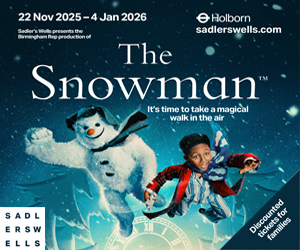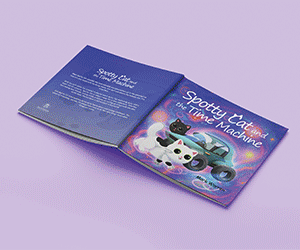Primary Times - the definitive what’s on and where to go family guide of activities and events for children of primary school age. Things to do with your kids during the school holidays including arts and craft activities, music and theatre for children, parties, competitions, days out, and family attractions along with term time drama schools, dance classes, after school clubs and sports activities. Things to do at a place near you!
Primary Times explores how the performing arts benefits our children
.jpg) The performing arts are a fantastic way to help children to develop their creative skills. There are no wrong answers, and everyone is actively encouraged to explore new and alternatives opinions.
The performing arts are a fantastic way to help children to develop their creative skills. There are no wrong answers, and everyone is actively encouraged to explore new and alternatives opinions.
Whether its dancing, acting, or singing, the arts can teach our children listening and communication skills, boost their self-belief and confidence, and improve their academic performance. But most importantly, the performing arts are a way for children to let off steam and have a lot of fun!
One of the main advantages of taking part in the performing arts in young individuals is the improvement of communication skills. Acting and drama, for example, will help with their presentation skills, vocal projection, tone of speech, and articulation. Listening skills will also become refined by taking on board stage directions from teachers, collaborating with peers, and working together toward a common goal of a fantastic end-performance. From learning new lines, to remembering their acting cues and timing, and rehearsing scenes time and again, children can improve their focus, memory, concentration, and quick-learning skills.
For some children, confidence comes naturally to them, however others needs more support and encouragement in order to develop into confident individuals. The performing arts can provide children with the combination of a safe environment and activities they love outside of the normal classroom environment, allowing them to gradually come out of their shells.
Overcoming backstage, pre-performance nerves can normalise a child’s feeling of anxiety. Whilst it won’t take away nerves they may have, it’s a fantastic way to teach them methods of successfully overcoming feelings of pressure. Practices like contributing ideas to a drama performance or adding new moves to a dance routine can allow them to express their personality in ways they may not have done before.
Links to improved performance in maths, reading and writing from involvement in performing arts are widely documented too. Studies have found that creative and critical thinking, problem-solving, and reasoning increase and improve when arts education is added to the mix.
Top tips for how to incorporate the arts into your home!
1. When you read to your children, be dramatic. Act out stories with props and costumes. Encourage them to create their own stories to act out for you.
2. Save old costumes and props for dress-up fun. Add to the collection with clothing you no longer need: hats, scarves, purses, shoes, and any other hand-medowns you can find.
3. Introduce dance into the home. Teach your children traditional dances you know or improvise with them. Body movement is fun and good exercise.
4. Sing together. Teach the kids your favourite songs.
5. Expand your musical repertoire at home and in the car. Venture into unknown musical territory so that you and the children can hear something out of your usual fare. This can be easily expanded by tuning into a different radio stations and by checking out cassettes and CDs from the public library — all for free!




